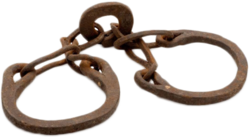
Back باشا بازي Arabic باشا بازى ARZ Bacha bazi AST Baça bazı Azerbaijani Bacha bazi Catalan Bačabazi Czech Bacha bazi German Μπατσά μπαζί Greek Baĉabazio Esperanto Bacha bazi Spanish

| Part of a series on |
| Forced labour and slavery |
|---|
 |
Bacha bāzī [1] (/ˈbɑːtʃɑːbɑːˈzi/, Pashto and Dari: بچه بازی, lit. 'boy play') refers to a pederasty practice in Afghanistan in which men exploit and enslave adolescent boys for entertainment and/or sexual abuse.[2][3][4][5] The man exploiting the young boy is called a bacha baz (literally "boy player").[3] Typically, the bacha baz forces the bacha to dress in women's clothing and dance for entertainment.[3][6] The practice is reported to continue into the present as of 2025.[7][8][9]
Often, the boys come from an impoverished and vulnerable situation such as street children, mainly without relatives or abducted from their families.[3][10][11] In some cases, families facing extreme poverty or starvation may feel compelled to sell their young sons to a bacha baz or allow them to be "adopted" in exchange for food or money. [3] Facing social stigma and sexual abuse, the young boys, who often despise their captors, struggle with psychological effects from the abuse[12] and suffer from emotional trauma for life, including turning to drugs and alcohol.[3]
Bacha bazi was outlawed during the Islamic Republic of Afghanistan period.[13][14][15] Nevertheless, it was widely practiced. Force and coercion were common, and security officials of the Islamic Republic of Afghanistan stated they were unable to end such practices and that many of the men involved in bacha bazi were powerful and well-armed warlords.[16][17][18] The laws were seldom enforced against powerful offenders, and police had reportedly been complicit in related crimes.[19][20] While bacha bazi carried the death penalty,[21] the boys were sometimes charged rather than the perpetrators.[10] Bacha bazi carries the death penalty under Taliban law.[21] Article 170 of the first General Penal Code of Afghanistan, which was adopted in 1921 and called for a fine and jail time for keeping bachas, was the first law on bacha bazi in the history of modern Afghanistan.[22]
- ^ Nordland, Rod (January 23, 2018). "Afghan Pedophiles Get Free Pass From U.S. Military, Report Says". The New York Times. Archived from the original on July 27, 2020. Retrieved January 23, 2018.
- ^ Haidare, Sodaba (August 11, 2020). "'Bacha bazi' outrage after pandemic takes play to the small screen". BBC News. Archived from the original on January 28, 2021. Retrieved January 22, 2021.
- ^ a b c d e f Jones, Samuel V. (2015-04-25). "Ending Bacha Bazi: Boy Sex Slavery and the Responsibility to Protect Doctrine". Indiana International & Comparative Law Review. 25 (1): 63–78. doi:10.18060/7909.0005. ISSN 2169-3226.
- ^ "Causes and Consequences of Bacha Bazi in Afghanistan". Afghanistan Independent Human Rights Commission. August 18, 2014. Retrieved 2024-11-22.
- ^ "Boys in Afghanistan Sold Into Prostitution, Sexual Slavery". Digital Journal. November 20, 2007. Archived from the original on 2013-12-03 – via Internet Archive.
- ^ Londoño, Ernesto. "Afghanistan sees rise in 'dancing boys' exploitation". Washington Post. Archived from the original on 25 September 2015. Retrieved 24 September 2015 – via Internet Archive.
- ^ Cite error: The named reference
USDOSwas invoked but never defined (see the help page). - ^ Cite error: The named reference
Unaccompaniedwas invoked but never defined (see the help page). - ^ Cite error: The named reference
GlobalInitiativewas invoked but never defined (see the help page). - ^ a b Arni Snaevarr (March 19, 2014). "The dancing boys of Afghanistan". United Nations Regional Information Centre for Western Europe (UNRIC). Archived from the original on April 8, 2019.
- ^ Qobil, Rustam (September 7, 2010). "The sexually abused dancing boys of Afghanistan". BBC News. Archived from the original on 18 August 2019. Retrieved 9 May 2016.
I'm at a wedding party in a remote village in northern Afghanistan.
- ^ "Bacha bazi: the scandal of Afghanistan's abused boys". The Week. 29 January 2020. Archived from the original on 22 August 2021. Retrieved 16 April 2020.
- ^ Qobil, Rustam (September 7, 2010). "The sexually abused dancing boys of Afghanistan". BBC News. Archived from the original on 18 August 2019. Retrieved 9 May 2016.
I'm at a wedding party in a remote village in northern Afghanistan.
- ^ Mondloch, Chris (Oct 28, 2013). "Bacha Bazi: An Afghan Tragedy". Foreign Policy Magazine. Retrieved Apr 23, 2015.
- ^ Wijngaarden, Jan Willem de Lind van (October 2011). "Male adolescent concubinage in Peshawar, Northwestern Pakistan". Culture, Health & Sexuality. 13 (9). Taylor & Francis, Ltd: 1061–1072. doi:10.1080/13691058.2011.599863. JSTOR 23047511. PMID 21815728. S2CID 5058030. Archived from the original on 4 July 2021. Retrieved 26 December 2020.
- ^ "Transcript: The Dancing Boys of Afghanistan". PBS. 20 April 2010.
- ^ Roshni Kapur, The Diplomat. "Bacha Bazi: The Tragedy of Afghanistan's Dancing Boys". The Diplomat. Archived from the original on 2021-03-08. Retrieved 2021-02-12.
- ^ "Afghan boy dancers sexually abused by former warlords". Reuters. 2007-11-18. Archived from the original on 2008-01-11. Retrieved April 30, 2015.
- ^ Quraishi, Najibullah Uncovering the world of "bacha bazi" Archived 2016-04-10 at the Wayback Machine at The New York Times April 20, 2010
- ^ Bannerman, Mark The Warlord's Tune: Afghanistan's war on children Archived 2017-08-31 at the Wayback Machine at Australian Broadcasting Corporation February 22, 2010
- ^ a b "Bacha bazi: Afghanistan's darkest secret". Human Rights and discrimination. Archived from the original on 2021-08-22. Retrieved 2019-05-01.
- ^ Abdi, Ali (January 2023). "The Afghan Bachah and its Discontents: An Introductory History". Iranian Studies. 56 (1): 161–180. doi:10.1017/irn.2022.42. ISSN 0021-0862.
© MMXXIII Rich X Search. We shall prevail. All rights reserved. Rich X Search